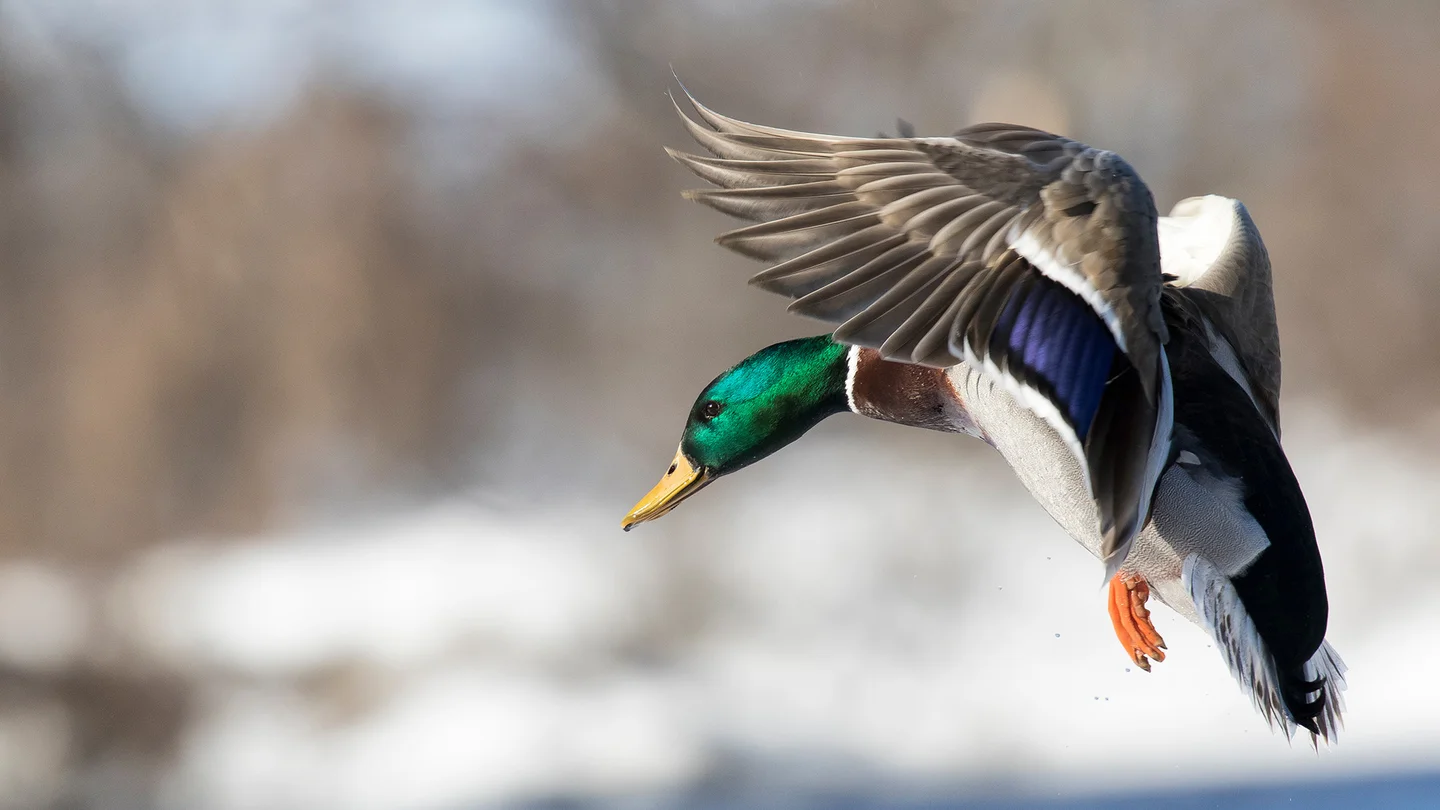Duck Sounds: How to Speak the Language

Communicating with a duck isn’t too difficult if you know what you’re talking to, what you’re saying, and you arm yourself with the right instrument
By M.D. Johnson / Field & Stream
I grew up in northeast Ohio in the 1970s, which meant, as a duck hunter, I grew up hearing duck sounds from mallards and black ducks, both of which quack. My father and I didn’t attempt to call wood ducks, for as he often said, “they’re either coming here or they’re not.” Teal? Same story; no calling. Divers? Never hunted them because, and to quote my old man again, “they taste bad and they’re not mallards or black ducks.”
Then in 1993, I moved to Washington State and introduced my soon-to-be wife, Julia, to duck hunting. I quickly learned, though, that Washington had more to offer in terms of waterfowl species than did Ohio. It quickly felt like I’d moved to a foreign country, as the birds seemingly spoke another language. And, it soon became apparent that if I were to become proficient in calling these new ducks, I’d have to learn a new way. Truthfully, speaking these second languages isn’t difficult, if you know what you’re talking to, what you’re saying, and you arm yourself with the right instrument. CONTINUE READING ARTICLE
Discover more from HuntingOfficer
Subscribe to get the latest posts sent to your email.
